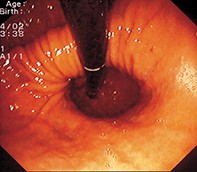Peer Reviewed
Feature Article Gastroenterology
Gastro-oesophageal reflux disease: mechanisms and management
Abstract
Gastro-oesophageal reflux disease is common and its symptoms often have a significant impact on an individual’s quality of life. Management generally involves attention to lifestyle factors and individualised medical treatment. Surgery may be required for a small number of cases.
Key Points
- Gastro-oesophageal reflux disease (GORD) is common and tends to run a chronic and relapsing course.
- The most common symptoms of GORD are heartburn and regurgitation. Atypical presentations include a chronic cough, hoarseness, sore throat, asthma and atypical chest pain.
- Helicobacter pylori does not cause GORD.
- Treatment of GORD, including endoscopy-negative reflux, involves attention to lifestyle modification and acid suppressant therapy.
- Therapy is best commenced with a proton pump inhibitor and a step-down approach should then be adopted. In the long term, maintenance treatment can be given on either a continuous or on-demand basis.
- Antireflux surgery should be considered for patients who have failed medical therapy and patients who have regurgitation as a predominant symptom. It should also be considered as an alternative to lifelong medical therapy in young patients with severe oesophagitis.
Purchase the PDF version of this article
Already a subscriber? Login here.

